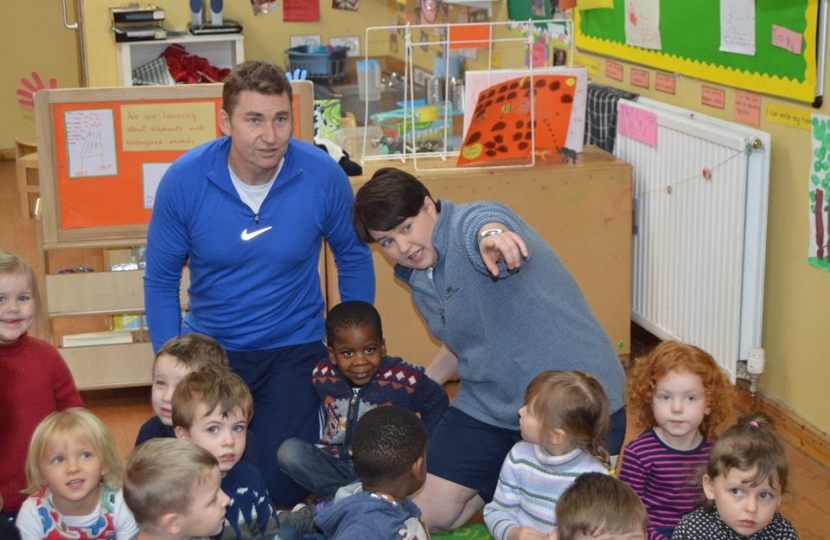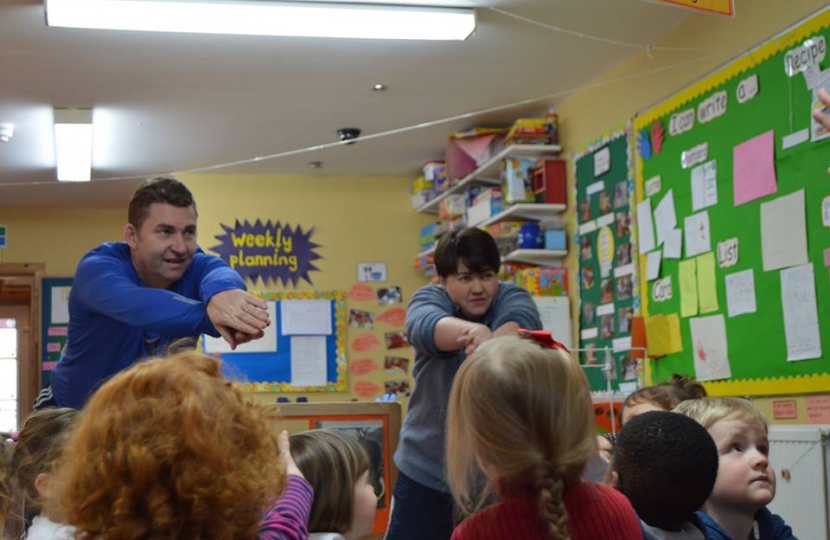South Scotland Regional MSP Brian Whittle is leading calls for a major change in how Scotland tackles its reputation as “The Sick Man of Europe”.
In his role as Scottish Conservative Party Spokesperson for Health Education, Lifestyle & Sport, the MSP has launched a consultation document with the aim of setting out a bold new long term strategy to transform the health of Scotland and close the dramatic health inequality gap.
The paper “A Healthy Lifestyle Strategy” concentrates on the role of education in tackling health inequality. Scots will die an average of over two years earlier than people living in England and across Scotland there’s a gap of more than 12 years between those living in parts of the country who can expect to live the longest and the shortest period in good health.
Among the proposals in the document are a new focus on early years intervention; aiming to ensure that as the next generation of children and young people grow up with physical activity as a regular part of their education; from nursery all the way through primary and secondary education; with the aim of making physical activity a natural part of their daily routine.
Brian has put together the document after speaking with nearly 50 organisations involved in activities relating to health and sport including a number from Ayrshire including South Ayrshire Access to Sport, The Zone Initiative, ACE RaceRunning, Ayrshire Cancer Support and Morven Day Services in Kilmarnock.
Speaking at the launch, Brian Whittle MSP said:
“For a long time now, there’s been a real lack of joined up thinking when it comes to health. Successive Governments have talked about dealing with Scotland’s terrible public health record but time and again they’ve failed to deliver.
It’s clear to me that the current state of Scotland’s health is neither desirable or sustainable. We can’t continue to ask Scotland’s NHS to treat an ever increasing number of people with entirely preventable conditions. From Type 2 diabetes to cancer to depression, if we can get more people more active in their day to day lives, we can halt the preventable disease epidemic that’s plaguing Scotland.
If we are serious about a long term solution to these problems, then we need to concentrate our efforts on the early years of life. I think we’d all accept that the older people get, the more difficult it can be to change their lifestyles. By focussing on the early years, we can give the next generation a chance to grow up in an education system where regular physical activity and healthy eating are the norm. By the time children reach secondary school, we want taking part in sport or going for a run or a walk or a bike ride to be as everyday as homework.
Having spent months putting together this report, the information and feedback I’ve had from organisations across South Scotland has been invaluable. Many of the recommendations in this consultation are based on what I’ve learned from them.
I hope that this paper will spark a wider debate in Scotland about how we deal with the problems of poor mental health and preventable disease that have plagued Scotland for decades. At the very least it’s time we recognised that while Scotland as a whole is behind the curve, there are groups out there who are getting it right and we need to do more to support them. “
Scottish Conservative leader Ruth Davidson MSP said:
“The health gap that we have in Scotland is far too wide, and we need to do more to improve the wellbeing of Scots.
“That is why we have developed this strategy – to provide practical solutions that can get to the heart of the health issues we face.
“A big step towards achieving this is encouraging more physical activity from a young age, and that’s why we’re calling for it to become an integral part of children’s lives.
“There’s a huge body of evidence which proves that an active lifestyle can make an enormous difference to a person’s physical health, mental health, and ability to learn.
“We hope that this and the other recommendations made in this report can kick-start the debate on health and wellbeing in Scotland, and spur the Scottish Government into taking meaningful action.”


